20 Worst Travel Mistakes You Should Avoid in 2020
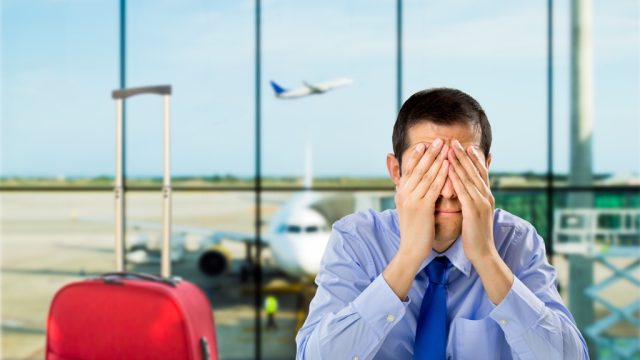
Do you have a vacation or two on your 2020 agenda? We sure do! While we absolutely recommend hitting the road in some capacity this year, there are a few pitfalls you’ll need to watch out for, whether you’re a novice traveler or a frequent flyer. In 2020, there will be some major travel-industry changes you’ll want to keep in mind, from a massive overhaul of acceptable IDs in the United States to political upheavals that might impact your journey abroad. So to help you plan your trips, we’re dishing out the details on the biggest travel mistakes to avoid now.
1
Trying to use your standard driver’s license at airport security
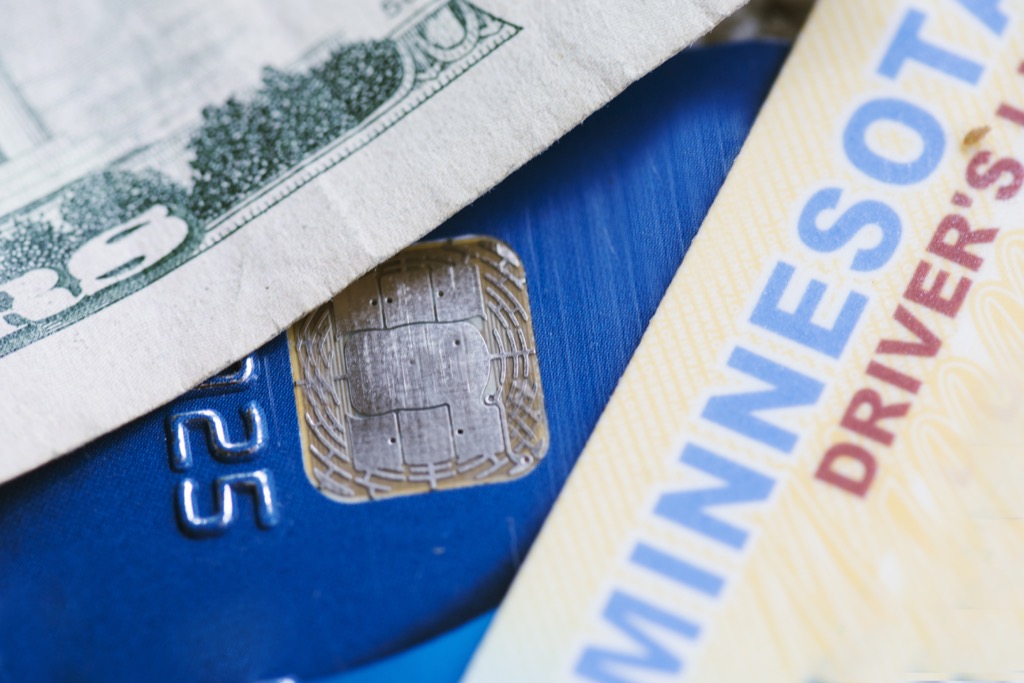
In 2005, Congress enacted the Real ID Act, which set new standards for federally accepted forms of identification, namely that standard driver’s licenses and non-driver ID cards would no longer make the cut for high-security sites like airports. Though the rollout of the act has been slow, the time has finally come. Starting on October 1, 2020, a standard United States driver’s license will no longer be accepted as valid ID at airport security across the country.
That means to get through TSA security checkpoints, you’ll need to show a REAL ID–compliant form of identification, which includes U.S. passports, U.S. passport cards, Department of Homeland Security trusted traveler cards like Global Entry and NEXUS, and enhanced driver’s licenses (EDLs)—see the full list of approved IDs on the TSA website.
In order to get one of the new EDLs, which are offered by every U.S. state and territory, you’ll typically have to apply in-person at a Department of Motor Vehicles (DMV) office and pay a fee. It can be a costly and time-consuming process, depending on your home state, so if your standard license is still valid, it might be easier to stick with it for things like driving, checking into a hotel, or entering bars, and use an alternative form of ID when flying. But do consider upgrading to the EDL when your regular license is about to expire!
2
Letting your passport expire—or fall within six months of expiration
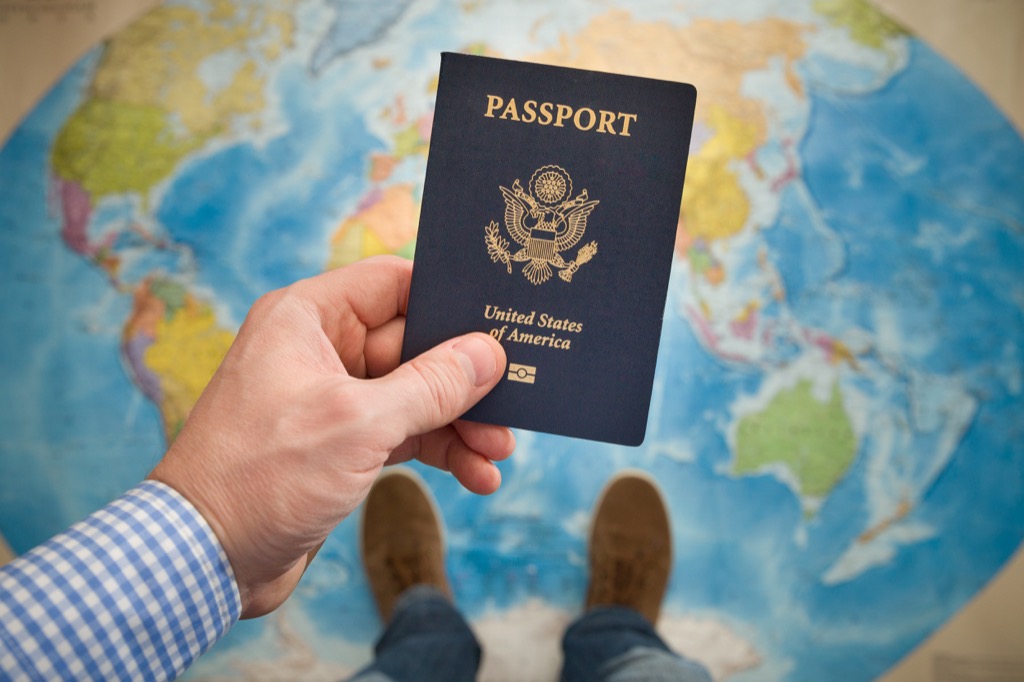
Speaking of expiration dates, always keep your passport expiration date in mind. As a general rule, you should never travel with a passport that expires within six months. Many countries around the world stipulate that a traveler’s passport must be valid for six months after the final date of travel (the day you head home from a country, not the day you arrive in that country). If your passport expires too soon, you could be turned away at the border and sent straight home.
If you need to renew your passport, try to do so well before your trip. According to the U.S. Department of State, passport renewals typically take four to six weeks, though in our experience, they’re sometimes processed within a shorter time frame. You can also pay $60 to expedite the renewal so that your new passport will arrive in just two to three weeks. If you need it even sooner (hey, sometimes you can’t resist a last-minute airfare deal!) visit a passport office in-person and get a new passport as soon as that very same day, for a price, of course. For the full breakdown of expedited timelines and fees, visit travel.state.gov.
3
Not signing up for flight deal alerts

Rather than spending hours combing through travel search engines to find great flight deals, you can register for any number of services that do the hard work for you. There are paid subscriptions like Scott’s Cheap Flights, which sends users emails with deals from a preferred airport, but there are also free websites like Airfarewatchdog and The Points Guy, which publish flight deals regularly (and announce them via Twitter accounts—notifications on, everyone!).
4
Waiting in lines at the airport
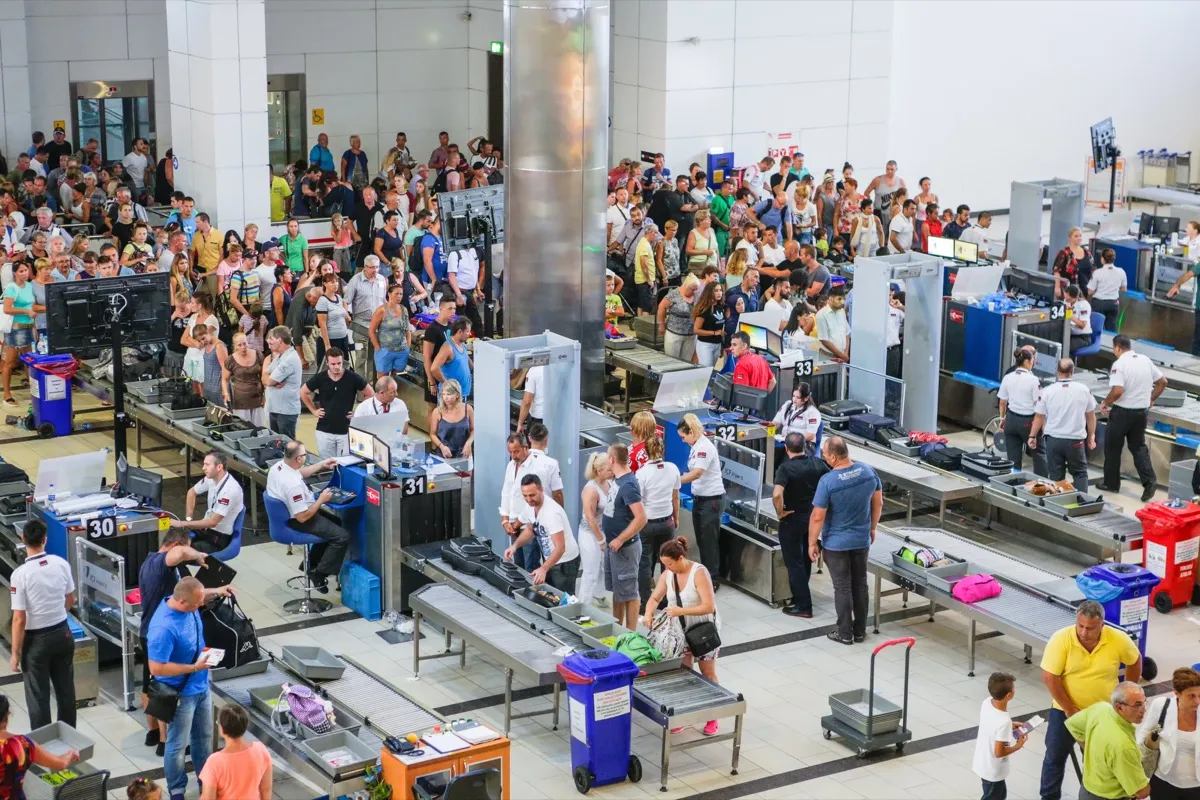
Forget the long queues at airport security or immigration: you can essentially pay to cut the line. TSA PreCheck, which costs just $85 for five years, allows pre-screened travelers to use an expedited security lane where you don’t need to take off your shoes or belt or take out your laptop and liquids. There’s also CLEAR, a private program that costs $179 per year (or far less if you’re a Delta SkyMiles member), which also offers fast security lines. On the immigration side, there are programs like Global Entry (it costs $100 for five years and includes TSA PreCheck) that offer pre-screened travelers access to short lines. Americans and Canadians can also take advantage of Mobile Passport Control in some U.S. airports for free—eligible travelers simply download an app, fill out their information, and get into a shorter immigration queue.
5
Leaving vacation days behind

According to a report by the U.S. Travel Association, Oxford Economics and Ipsos, Americans let 768 million vacation days go unused in 2018. Though offering PTO isn’t mandated by federal law, many businesses offer paid time off as a benefit to employees. Please use those days if you have them! Even if you aren’t able to jet to another country, consider taking time off for staycations or even mental health days.
6
Not knowing your rights for delay compensation in the European Union

Flight delays and cancelations are a drag, but they could also be a monetary boon if you’re flying to the European Union on an E.U.-based airline, from the E.U. on any airline, or within the E.U. on any airline. Thanks to EU Regulation 261/2004, also known as EC 261, you can receive up to €600, or about $670, for flight delays, depending on the distance traveled and the length of the delay. You can even retroactively claim compensation for a flight taken within the last few years (based on a specific country’s statute of limitations)! There are quite a few stipulations to cashing your check—a weather delay, for instance, isn’t covered. You can find the full list of rules here. If you do think your flight delay qualifies for compensation, you can file a claim directly with your airline or through the aforementioned E.U. website, or you can hire a third-party service to do it on your behalf, though they’ll take a commission if your claim is successful.
7
Getting scammed by Airbnb

An October 2019 investigation published by Vice revealed a nationwide scam on the popular vacation rental website Airbnb in which customers were bait-and-switched by hosts who advertised one accommodation but sent users to another. While such scams aren’t the norm on the site, they do exist, and travelers ought to keep an eye out for anything that seems shady. For instance, all monetary transactions should take place through Airbnb’s website or app—if a host asks you to pay them via any other means, refuse to do so, and contact Airbnb immediately. Since the Vice article was published, Airbnb has announced an audit of its nearly seven million listings to verify their authenticity.
8
Wasting time on the phone with customer service

When it comes to getting in touch with airline customer service representatives for any reason, skip the phone lines and head to Twitter. Sending a DM to an airline account will almost always get you a faster response than if you try to dial in. The customer service reps on Twitter are able to help you in numerous ways, from adding your frequent flyer number to your reservation to even rebooking missed connections.
9
Missing out on a chance to interact with locals

Traveling isn’t just about places, it’s about people, too. On your next trip, consider interacting with locals to learn more about their culture—and share your own culture, too. Beyond initiating conversations at your hotel, hostel, or a bar or restaurant, you can download any number of apps dedicated to connecting people around the world. Try Withlocals for tours and excursions, Eat With for fabulous dining experiences, or PartyWith for a taste of non-touristy nightlife.
10
Not preparing carefully for a trip to the Middle East

Just a few days into the new year, President Trump ordered an airstrike that killed Iranian general Qassem Soleimani. Whatever your thoughts about politics, this decision does have a direct impact on traveling to the Middle East. Americans are being urged to leave not only Iran, but also many countries throughout the region, including the United Arab Emirates and Israel, as the fear of retaliatory attacks grows. Though the Middle East is typically safe for tourists, these recent developments mean you should take extreme care in planning a trip there, at least in the immediate future. Consult the U.S. Department of State’s travel advisories for the latest information.
11
Staying in the airport during long layovers
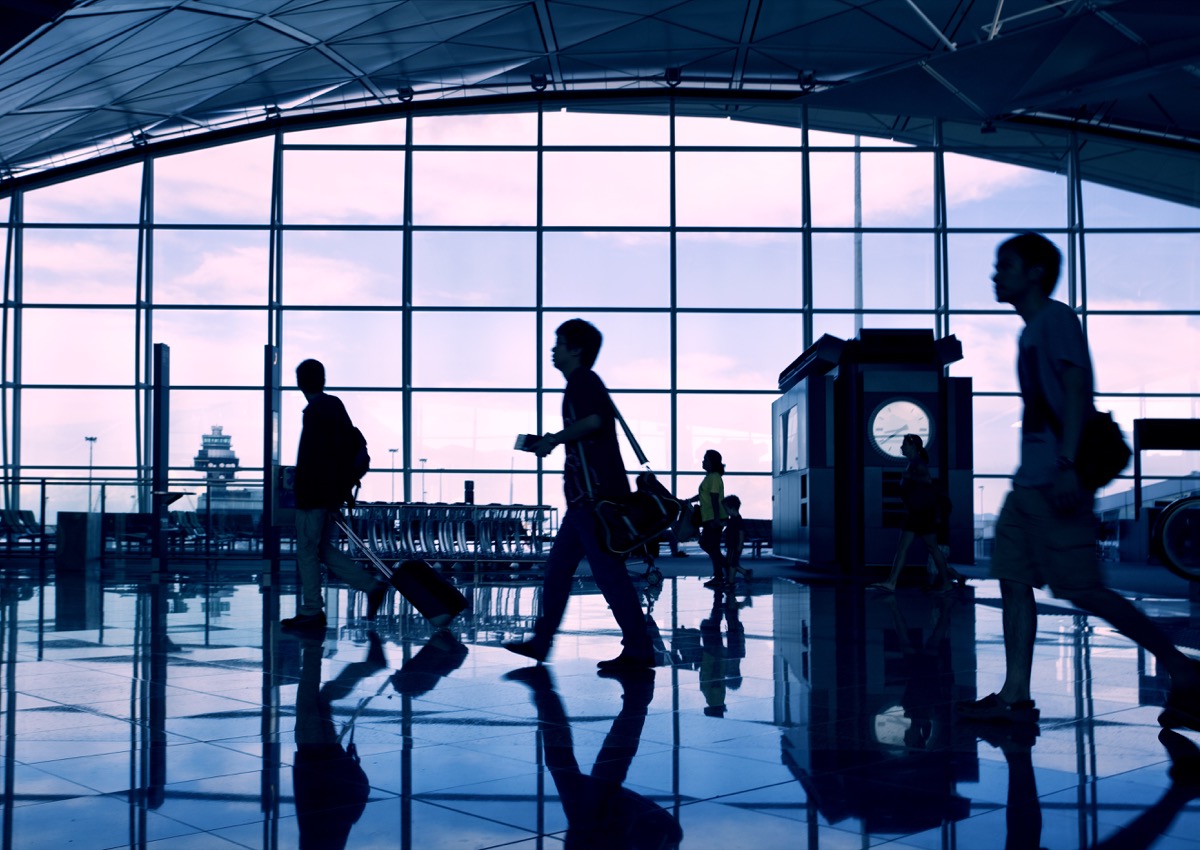
If you’re stuck on a 12-hour stopover, take advantage of your time on the ground by leaving the airport. In fact, a number of destinations and airlines around the world offer free city tours to passengers on long layovers, including Seoul, Singapore, and even Salt Lake City. Each tour requires a layover of a certain length—it could be anywhere from two to eight hours. If you’re going out on your own, be very careful about timing, as you’ll need to account for ground transportation and going through security again. Don’t want to lug your carry-on around? Many airports provide luggage lockers where you can stash your bags for the day. And before you make plans to leave, do check visa requirements in case you need to apply for one in advance.
12
Traveling to Tokyo during the Olympics, unless you’re specifically going for the event

The Olympics are one of the few things that can unite the entire world in friendly competition (for the most part, anyway), and the sports spectacles are certainly worth a trip at some point during your lifetime. But when a city hosts the Olympics, they’re often overrun by the overwhelming number of visitors who quickly fill up planes, trains, hotels, and restaurants while they’re in town—and drive up the prices of each. So unless you’re actually heading to Tokyo for the 2020 Olympics, it’s wise to skip the destination just before, during, and immediately after the games if you want to avoid larger-than-normal crowds and inflated prices.
13
Booking hotel stays through third-party websites

Sure, you might find the best hotel deals advertised on third-party sites like Expedia, Hotels.com, and Booking.com, but that doesn’t mean you should book through them. Instead, try to book directly through hotels themselves, as they’ll often match the lower price you’ve found if you ask. But the benefits of booking directly go far beyond price. There’s a far lower chance your reservation will be lost, as can happen when you book through a third party. And you’ll get better customer service in the event an issue arises with your reservation, since you won’t have to deal with a middle man. Plus, hotels often have more lenient terms and conditions regarding booking cancelations and changes, whereas third-party sites are more restrictive. Need more convincing? If you’re staying in a chain hotel, loyalty points can only be earned if you book directly. If you’re staying at an independent hotel, you’re saving the hotel from paying a hefty commission fee to a third-party site (this is particularly a huge deal for family-run properties).
14
Not playing the points game

It’s all about points when it comes to travel freebies and perks. If you’re a road warrior, invest in a credit card that lets you earn points that can be redeemed for free flights and hotel stays. You’re essentially getting free money for simply using your credit card, which is a great thing as long as you don’t fall into debt doing so. Beyond credit cards, you should work on earning points or miles with hotels and airlines. It’s usually free to register for accounts, and membership perks include everything from faster WiFi to discounts for programs like CLEAR at the airport. Once you earn enough points, you can redeem them for free nights or flights. Another benefit? Earning status with hotels and airlines, which translates into perks like upgrades to suites or business class.
15
Ignoring the fare class when booking flights
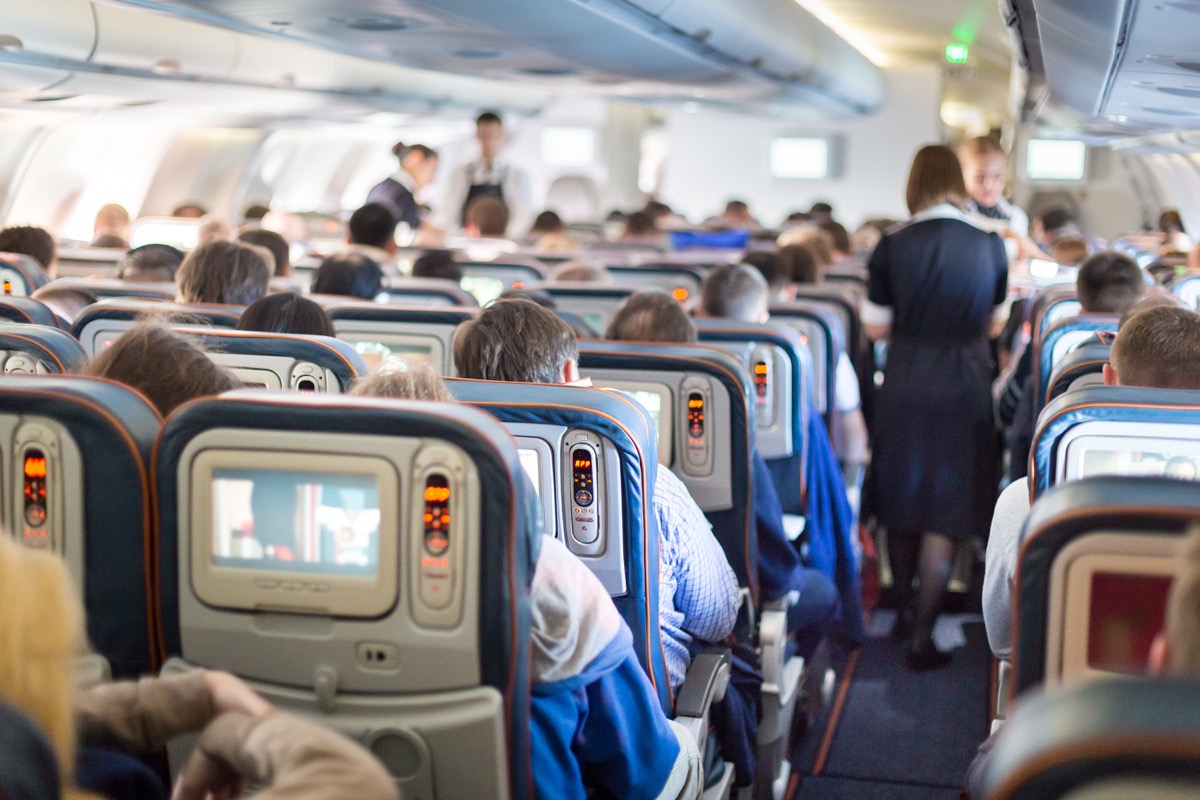
Think your only options for flying are first, business, and economy class? Think again. Even though most planes only have two or three cabins, they’re broken down into a number of specific fares. In the economy cabin, for instance, you can upgrade yourself to a premium economy fare, which typically gets you a priority economy seat with extra legroom. But you can also book basic economy fare, which still gets you a regular seat in the economy cabin—with far more restrictions. While basic economy is the cheapest fare, you won’t be able to pick your seat, bring a carry-on bag, or change your reservation for any reason. If you want the standard allowances that typically come with economy tickets, like seat reservations and a carry-on bag, book the main cabin fare class for a slightly higher price.
16
Not considering sustainability

In August 2018, Swedish activist Greta Thunberg sailed across the Atlantic to attend the UN Climate Action Summit in New York City, choosing a carbon-neutral form of transportation over flying. Her travels in part inspired flygskam, the Swedish word for “flight shaming,” a movement that has seen travelers all over the world give up air travel in favor of more eco-friendly ground transportation. In today’s world where climate change–driven natural catastrophes are happening more frequently, it’s important to think of your individual impact on the planet.
We’re not suggesting that everyone give up flying altogether—it is the most convenient form of long-distance travel, particularly for people who live in isolated locations like New Zealand—but it certainly wouldn’t hurt to opt for a train trip once in a while to cut down on your carbon footprint. Even small acts, like avoiding single-use plastics on the road by carrying a reusable water bottle and using solid shampoo bars are helpful.
17
Believing everything you see on Instagram

In a reversal of the adage “don’t judge a book by its cover,” the pretty places you see on your Instagram feed might not be so beautiful in real life. Take, for instance, the Gates of Heaven at the Pura Lempuyang Luhur temple complex in Bali. While the curated images on Instagram might have you believe the gates are a quiet, remote structure set on a glassy, reflective lake, that’s not the reality. Behind-the-scenes photos reveal hundreds of travelers waiting for hours in long lines to pay an on-site photographer to snap a quick iPhone pic. And the lake? Turns out it’s actually a small mirror held beneath the lens by the photographer to create an illusion. The temple complex is still quite beautiful on its own, but it’s not the serene location it appears to be on social media.
18
Only sticking to top-tier destinations

Sure, we totally get the allure of the world’s most popular vacation spots, but over-tourism is a problem for many of them, especially ones that don’t have the infrastructure to handle large crowds. The swarms of visitors can be unpleasant for both travelers and locals alike, and irreparable damage could be done to historic sites. So instead of joining the throngs, visit second cities or more off-the-beaten path locales. But if a popular destination is on your bucket list, we do encourage you to go—just try going in the shoulder or off season, when crowds are thinner and prices go down!
19
Not taking advantage of cheap flights to Hawaii

In 2019, the Federal Aviation Administration (FAA) approved flights to Hawaii for low-cost airline Southwest, which plans on expanding its number of routes to the islands in 2020. That means we’ll likely see low fares to Hawaii not only on Southwest, but also on the major carriers who will likely lower prices to compete with Southwest’s offerings.
20
Skipping out on travel insurance if you’re frequently on the road
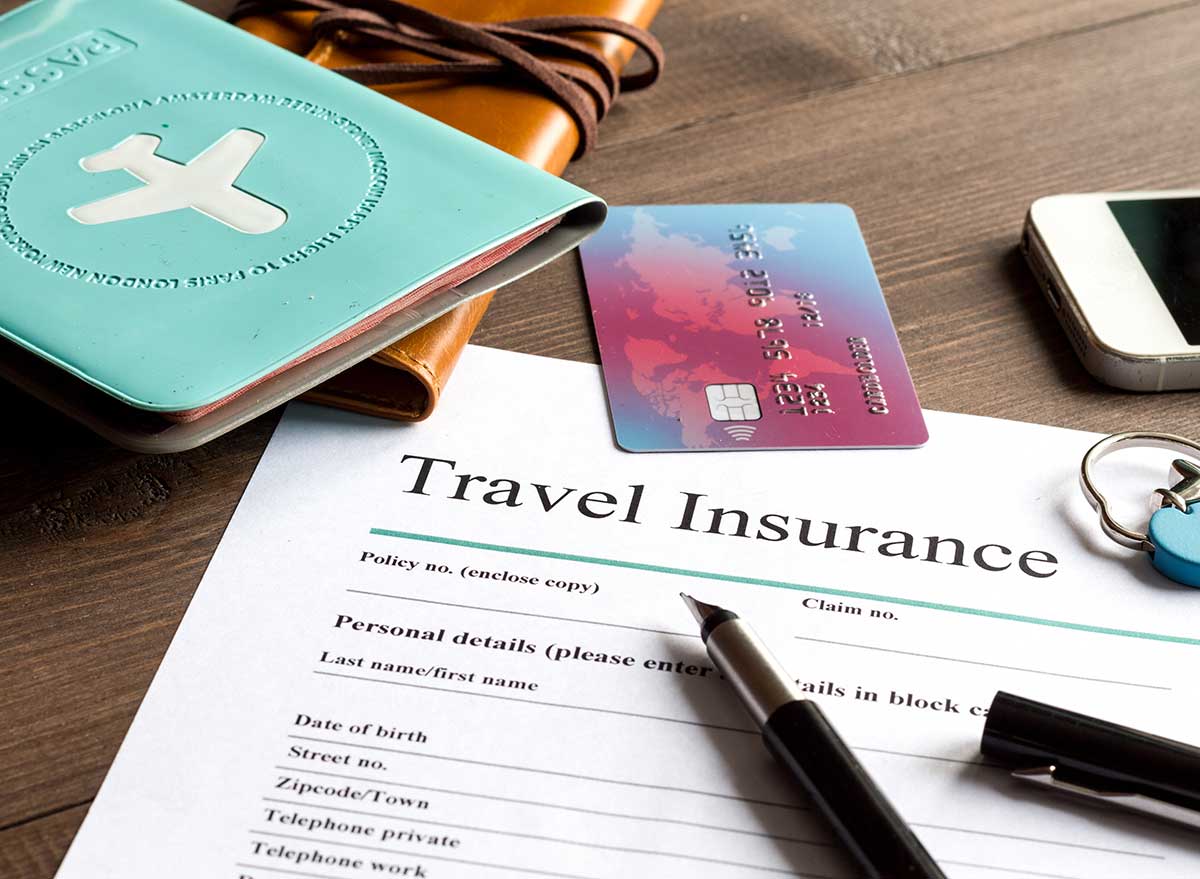
No, travel insurance isn’t a necessity, but it might give you some peace of mind to sign up for a policy. Even the most affordable policies usually cover extreme events, say, being medevaced from a remote destination—a major out-of-pocket cost—and sometimes they’ll even compensate you for smaller issues like flight delays or lost luggage. If you’re a regular traveler, you can save money by opting for a year-long plan rather than insuring individual trips.